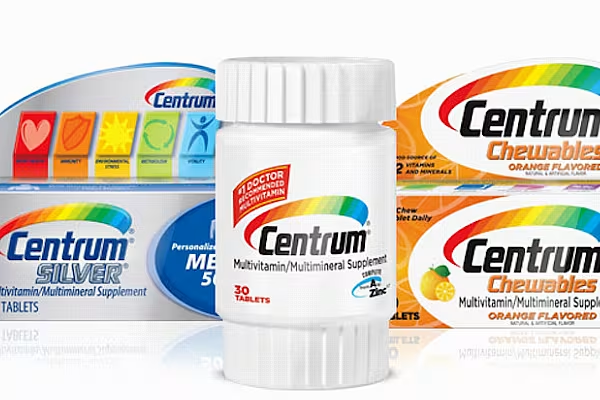Reckitt Benckiser Group Plc would consider acquiring Pfizer Inc.’s consumer-health unit were it to come up for sale in the wake of the Viagra maker’s merger with Allergan Plc.
Buying the unit would add the Advil, ChapStick and Centrum brands to a fast-growing portfolio of consumer-health products such as Nurofen painkillers and Durex condoms, Chief Executive Officer Rakesh Kapoor said Friday in an interview in London. The $160 billion Allergan deal may lead to Pfizer splitting up the enlarged organization, and the New York-based company has said it will decide on a potential separation by the end of 2018.
“If the Pfizer consumer business was to come up for any number of reasons and if it goes through all these processes, would RB be interested to look at it? Yes,” Kapoor said. “I’d be very interested in looking at it.”
Adding Pfizer’s consumer-health business -- which generates annual sales of about $3.5 billion -- would further Kapoor’s plan to help consolidate a fragmented industry, where the leading companies control less than 30 percent of market share. It would also be Kapoor’s first big transaction since the $482 million deal to license some of Bristol-Myers Squibb Co.’s Latin American brands in February 2013.
Last year, Kapoor bowed out of the bidding for Merck & Co.’s consumer unit, saying at the time that “we will not overpay for anything.” Germany’s Bayer AG won a heated contest for the business with a bid of $14.2 billion, well beyond early estimates for the unit, which had sales of about $1.9 billion from brands such as Claritin allergy remedies.
RB’s net debt ratio of 0.7 times adjusted earnings before interest, tax, depreciation and amortization is below that of competitors Unilever at 1.1 and Procter & Gamble Co. at 1.3, meaning the company has financial flexibility to pursue transformational acquisitions. Discussing firepower, Kapoor said that RB is not thinking about limitations on the size of a potential deal.
“If any of the interesting consumer-health assets were to come up today, I believe RB has the capacity to do it. Any of them,” he said.
An eventual disposal of the Pfizer unit is “inevitable,” analysts at Exane BNP Paribas said in a note last month. The division would be a good mid-term acquisition option for Slough, England-based Reckitt Benckiser, they said.
Pfizer stock rose 1.1 percent to $32.76 at 10:47 a.m. in New York trading. Allergan gained 1 percent to $316.01, while Reckitt Benckiser was little changed at 6,219 pence in London.
Reckitt Benckiser’s health unit accounts for about 31 percent of revenue and has grown sales by more than 10 percent in each quarter this year, more than double the pace of the company’s two other divisions.
The consumer-health industry has been slow to consolidate due to the lack of a significant catalyst, Kapoor said. Pfizer’s combination with Allergan could spur acquisitions, he said, with takeover targets potentially being created as pharmaceutical companies spin off consumer-health divisions. Last year, GlaxoSmithKline Plc and Novartis AG formed a joint venture as part of an asset-swap deal focused on cancer and vaccine drugs.
“If consumer health assets were standalone entities today, or had been, they would have been aggregated already a long time ago,” Kapoor said. “The only thing that holds them is they’re embedded in very large companies which have not found enough catalysts to let them go.”
News by Bloomberg, edited by ESM. To subscribe to ESM: The European Supermarket Magazine, click here.














